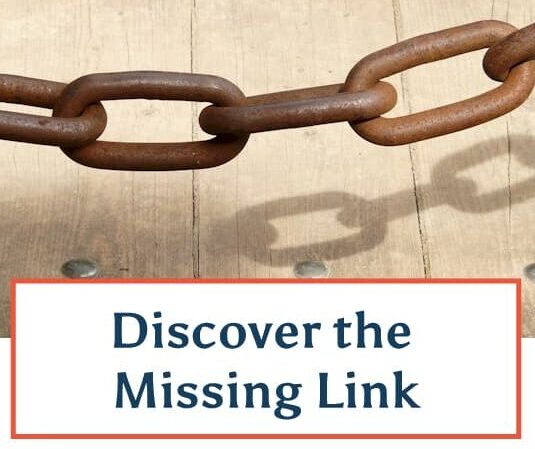When speaking with prospective clients or mastermind group members, it’s helpful to know in advance how to frame the conversation and design the flow of the meeting.
The goal of the sales conversation is to determine the needs of the client and to see which of your products and services are the best fit for them.
Selling has gotten a bad reputation because consultants try to sell to anyone with a pulse and a wallet. If you approach the sales conversation as a mutual and respectful opportunity to find out the needs of your prospective client, you won’t feel so slimy and “salesy.” After all, you are in business to help others achieve their goals, right?
Are you and your prospect a good fit?
The only way you’ll sell your services to a prospect is to discover if the two of you are a good fit. There are three questions you want to answer in the sales conversation:
- Does this prospect have a problem I can help them solve?
- Are they motivated to solve it right away?
- Do they have the money to invest in my products and services?
Your sales conversation agenda is geared toward finding the answers to these three questions.
If they’re not a good fit or motivated to take action, you’ll have a difficult time closing the sale. If they don’t want to spend money, you’ll have a rough time.
The steps in the sales conversation process
- Step 1: Determine your goals before the meeting
- Step 2: Determine their needs and wants
- Step 3: Determine their motivation level and their timeline
- Step 4: Determine their budget
- Step 5: Determine which of your products and services are a good fit
- Step 6: Answer questions and handle objections
Step 1 is crucial. What do you want to get from the conversation? Do you want to close the sale immediately in the meeting? If it’s a long sales process, your goal might be to have them accept a written proposal to review, or schedule a meeting with the next-level decision makers.
Steps 2 through 4 are accomplished by asking your prospect good coaching/consulting questions and listening fully to their answers.
The 7 questions to ask in a sales conversation
- What are your goals? (For instance, if you’re talking to a small business owner, you might ask, “What are you trying to create for your business? Do you have a clear vision of where you want your business to be a year from now?”)
- What does your world look like today? (This helps establish a baseline. The goal for them is to get from where they are today to where their big vision takes them a year from now.)
- What’s stopping you from reaching your goals? (It’s important to find out what’s holding them back. Do they need practical knowledge and skills? To outsource work to you or others? Or do they need personal development help, like making decisions, creating action plans, managing time, and dealing with limiting beliefs?)
- What outcomes do you want from working with someone like me?
- What happens if you don’t work on your problems now? (Let them imagine what their world will look like if they procrastinate. For instance, you might ask, “How will you feel if you don’t reach your goals?” or “What happens if you don’t solve this problem?”)
- What’s your timeframe for getting help or solving this problem?
- What’s your budget?
There are deeper levels of sophistication when writing your sales script and having a sales conversation. However, these seven questions will get you moving in the right direction as you’re perfecting your sales skills.
Question #2 is tricky
You want to discover their root need, not just the symptoms of the problem. For instance, they might tell you they want to increase sales or build a bigger business, but sales have been sluggish for them. Sluggish sales are a symptom of the problem, not the root problem. Ask probing questions to discover why this has been happening for them. Be prepared for this common answer: “I don’t know.” Part of the reason they’re hiring you is to get clarity about why things aren’t going the way they want.
Finding the matching service or product
Once you get through these seven questions, suggest which of your services (or products) is the best fit for their needs and budget.
Don’t be afraid to offer them something that’s more expensive than their budget, if you can justify why this is the best solution for them. Unless you’re working with a corporate client, most people won’t know their budget, or they’ll only have an intuitive sense of what they’re willing to pay. If they’ve hired other consultants before, they might have a more concrete range they’re willing to pay. If they don’t have a budget in mind, tell them the fee for working with you, the determine if they have resistance to that fee level.
If their timeframe or budget doesn’t lend itself to one of your standard services, can you offer them a different service or product that might work for them? Recently I had a conversation with a prospect who wanted to know when the next live Facilitator Training class was. I told her it would be in two months, but her next opportunity to facilitate was in five days! So, instead, I offered her my online self-study course which she could consume in the next five days and be ready for her upcoming meeting without waiting for the live, in-person class.
Don’t forget the final step in this process
Ask for the sale. If you think they’re a good fit, tell them you’d like to work with them. Give a timeframe for when you could begin working together. Explain why your services or products are the right fit based on their needs, timeframe, and budget. And if you don’t think it’s a good fit, tell them so.

 12 Must-Have Items to Put in Your Welcome Email
12 Must-Have Items to Put in Your Welcome Email
